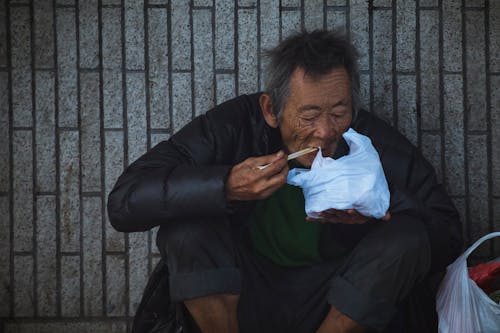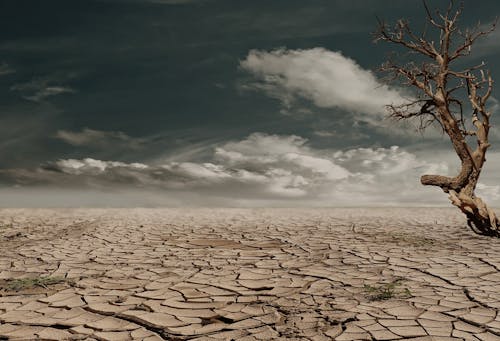

Click here to support the blog.
Adam Smith, the Scottish economist, often hailed as the father of Economics, wrote a book titled An Inquiry into the Nature and Causes of The Wealth of Nations, generally referred by its shortened title The Wealth of Nations. In this book, first published in 1776, Adam Smith talks about the things that make a country rich or poor. Now, almost two and a half centuries later, we still are having huge economic disparities among various nations, that keep widening with the passing time. We all have heard the phrase, “Money cannot buy you happiness”, at some point in our lives. Of course, money can’t buy you happiness, but it can buy you things that can make you feel happy. Forget about the villas, the private jets, and the luxury cars. You need money to put food on your table, to shelter you, and to cover yourself. All these are basic human needs that one cannot get without money. However, considering GDP per capita, the world’s richest country-Qatar is approximately 185 times richer than the world’s poorest country Burundi. If we take the twenty poorest together, Qatar still will be four times richer (Source IMF, The Economic Outlook 2019). If Zimbabwe continues to grow the way it is growing (at a very slow pace), it will take another 2700 years for it to become a rich country. In this article, we are going to analyse the key factors that make a country rich or poor.
1. Institutions:-
Institutions are the most vital means to be taken into consideration for achieving the economic well being of a nation. Because, a state with good institutions, finds it easier to cope with the hindrances that come along, while striving for economic progress. A responsible legislature, a transparent executive, an independent and fair judiciary, and a robust economy monitoring body like central banks are all good institutions. Also, good institutions provide financial and political stability, which are pretty much important for making a nation wealthier. A country with bad institutions, is generally more corrupt than a country with good ones, which causes to hamper its economic growth. Corruption cripples the taxation system and without adequate taxes, no government can run a country efficiently. For example, many of the African countries and Central Asian republics are very rich in resources but lack proper institutions to guard these resources against the corruption and misgovernance, which is why these countries are so poor. But on the other hand, countries like Israel, Singapore, and Japan do not have many natural resources and still they are doing pretty well.
2. Culture:-
Now, culture can be defined, as the way people in a society behave with others under different circumstances, and the value system they have that influences their behaviour. One of the top factors that decide the culture of a country, is the “religion”. It is very interesting to know that most of the rich countries have a majority of people who do not take an active part in religious activities. Religious conservatism often acts as a roadblock to the creativity and people start to look up to the heavens for the solutions of their problems, instead of trying to find the solutions themselves. This makes a country scientifically and technologically stagnant and without the growth of science and technology, one cannot except its economy to grow. Of course, some Arab countries, including Qatar (the world’s richest country) are both religious and prosperous at the same time but these are just exceptions. Also, many countries have spoiled the chances of becoming rich, just because of the fanaticism that grows as a weed alongside religion. Religion, per se, may not be that bad for economic progress but when it is given preference over the reason, then it becomes a pretty nasty thing. In a rich country, people believe more in their talents and efforts than the will of God.
Culture also involves the character of a nation that gets tested during the tough times. Japan, in this case, is the best example. Although, a small country with limited resources, Japan’s national character is unmatchable. From fighting the countries, ten times the size of itself to getting bombarded with Atom bombs, and from getting hit with dozens of major earthquakes to getting devastated by the Tsunamis, it has seen all and still it is one of the top economies. And on the other hand, there are some countries that have all the resources, huge territories, and unlimited opportunities, yet they fail to develop because of the lack of national character.
3. Geography:-
Geography of a nation plays an important part in its economic development. Climate of a country determines the efficiency of labour that goes in building the economy of a nation. Mostly, the tropical countries are poorer when compared to the countries in the temperate zones. This is because of the inhospitable warm and humid climate of the tropics, that makes the soil less fertile, plants less nutritious, animals less active and humans more inefficient. Moreover, this type of climate is conducive for the growth of pathogens that cause many pandemics in the African countries and put the economies there on the halt. On the other hand, people living in cooler countries are more productive because the temperature is feasible for it. All the things that help humans to progress, like agriculture, animal husbandry and manual labour can be done at ease, thus creating a greater opportunity for economic growth.

The location of a country is also an important factor in shaping the economy of a nation. All the major civilisations were either build along the rivers or the coasts. Today also, there is an enormous role of inland waterways and ports in shaping the top economies of the modern world like the U.S, U.K and Japan. Africa has limited navigable rivers and has many landlocked countries too. This is also one of the reasons for Africa’s lack of economic growth. It is not just limited to Africa as countries like Paraguay in South America, Central Asian countries, Afghanistan, Nepal, and Laos in Asia and East-European countries, all suffer an economic loss, since these countries are landlocked.
Now resources are also a key factor but these are not determinants of the economy, but merely intensifiers. Intensifiers are those things which act as catalysts for the economic growth by helping the other factors that grow an economy. Resources alone cannot build an economy. Many poor countries, in fact, have more natural resources when compared to the rich ones but they remain poor because they lack the factors like good institutions, location, culture etc. Countries like the Democratic Republic of Congo, Central Asian Nations and Central American Nations can be cited as examples of this, where elites grab the resources and the masses suffer from poverty.
On a personal level , this article should make the reader realize that when he credits his success only to his hard work and sheer determination, he should also thank the time, place and situation of the country, he is living in. And, at the same time, he should be sympathetic enough to not ridicule someone for his misery, as the other guy may be working twice as hard as he does and he may not be fortunate enough to have all the perks, as he has.


Comments
Post a Comment
Feel free to ask any queries regarding the posts.